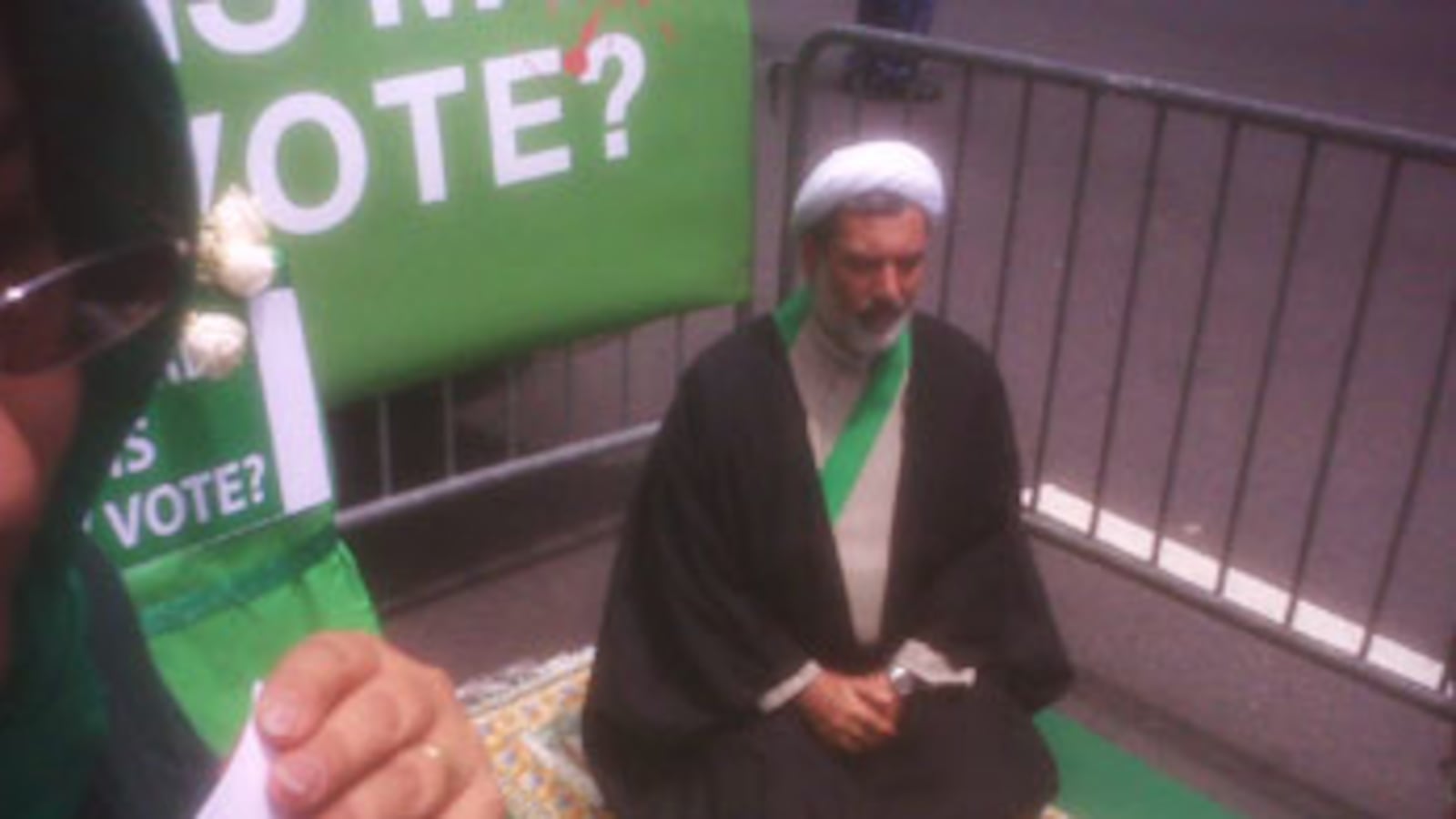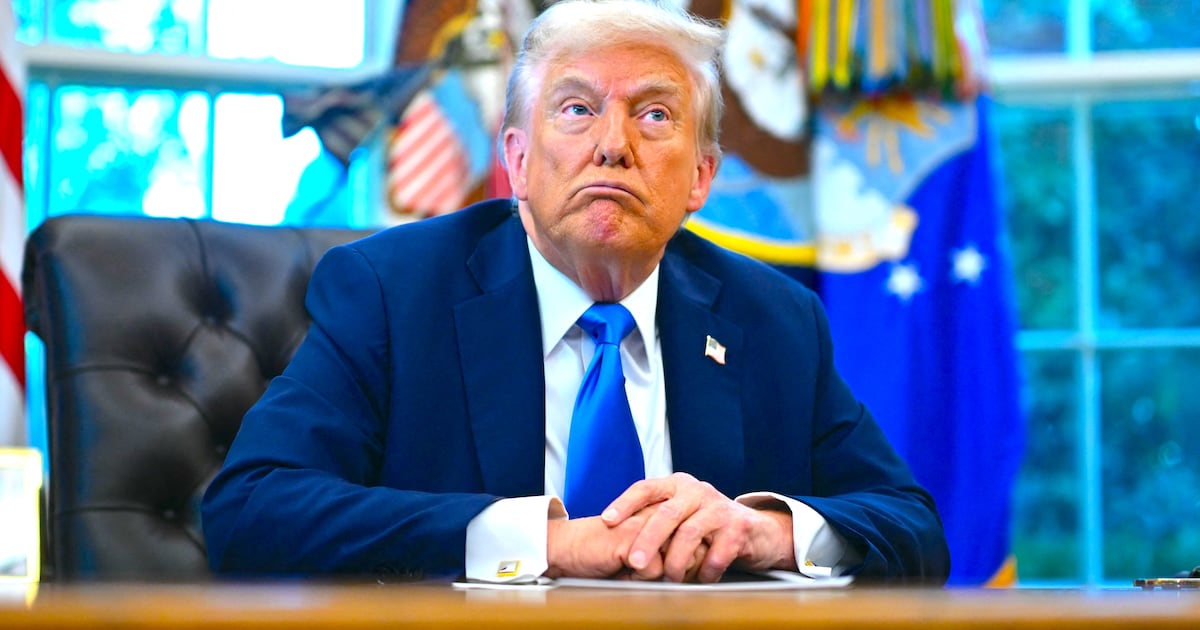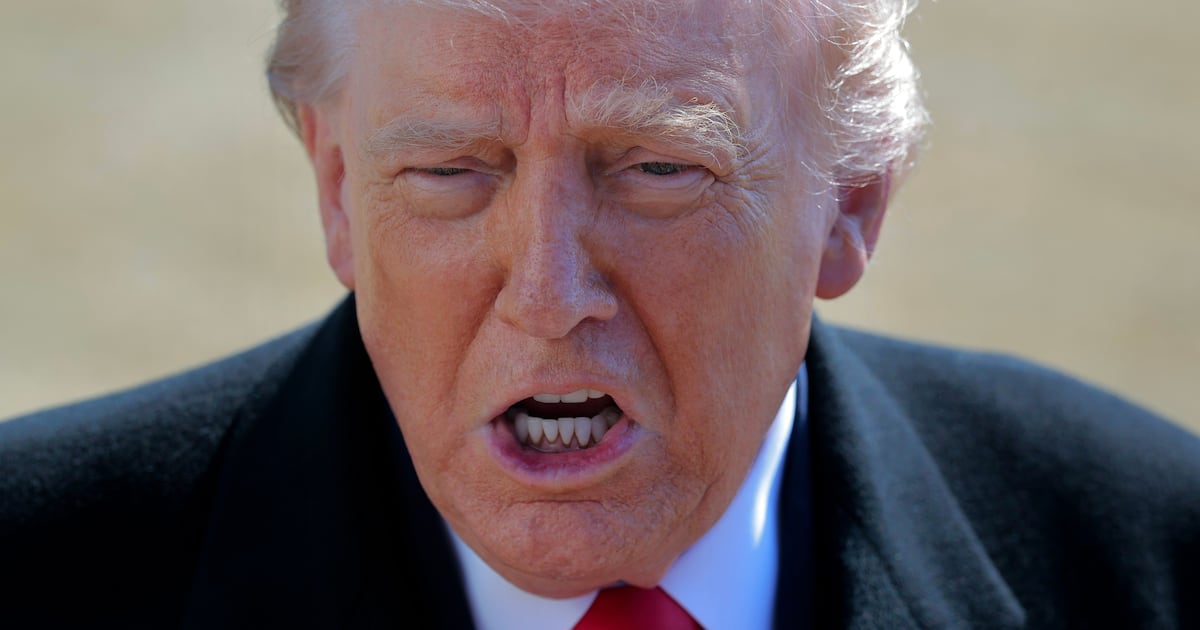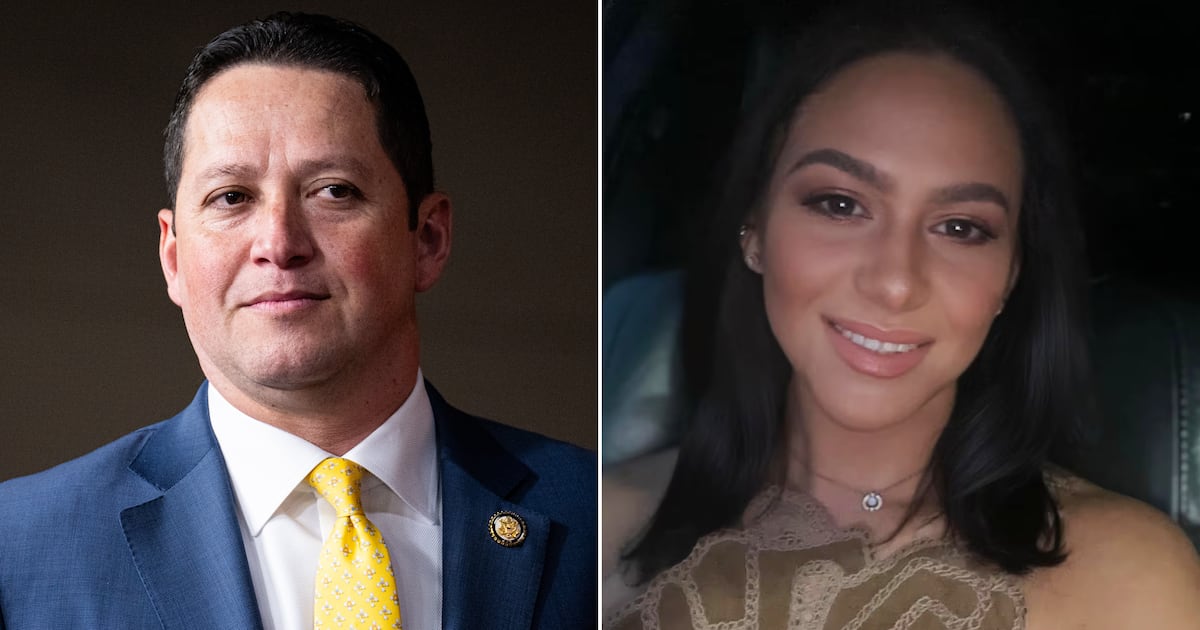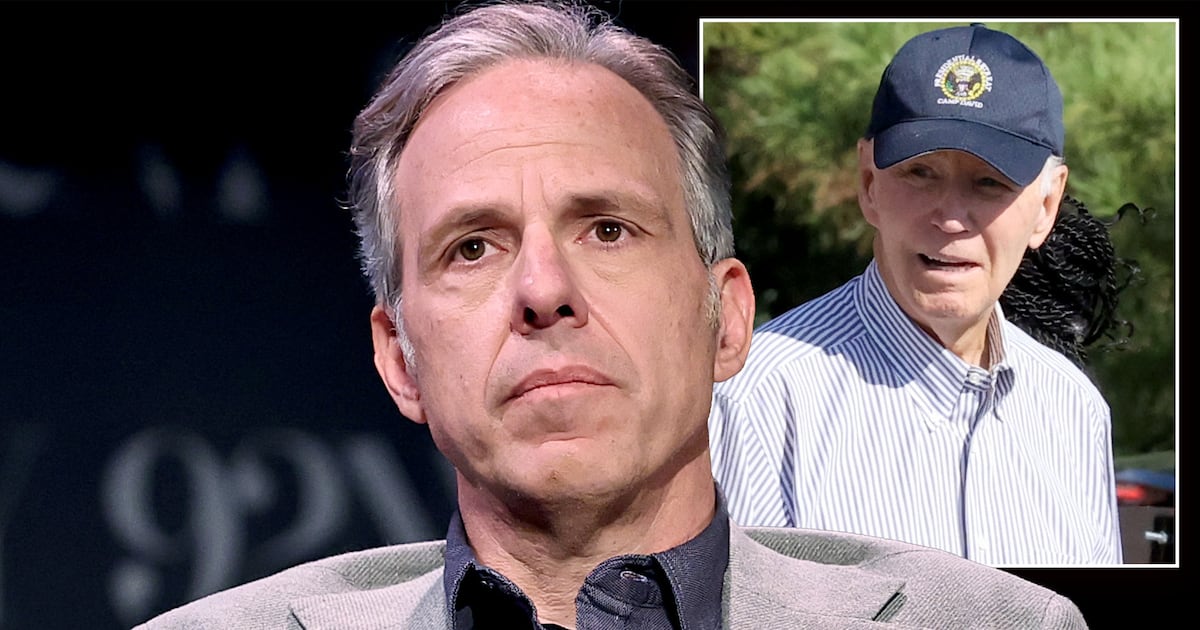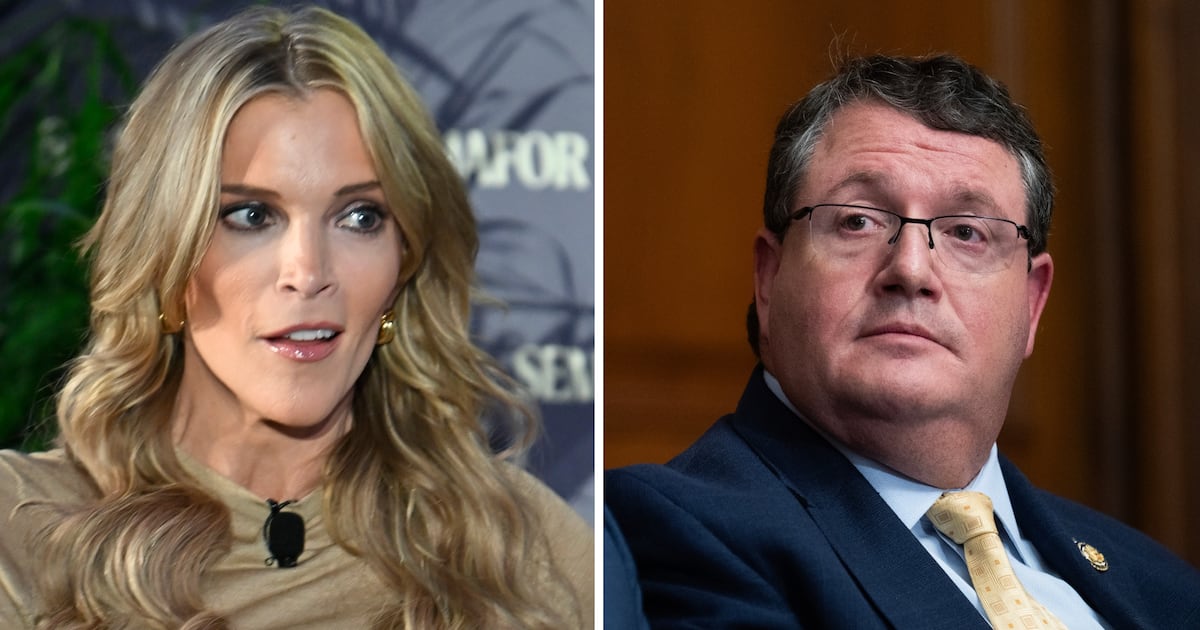
Plus, read more insight on Iran's election from other Daily Beast writers.
Iran's escalating protests, which many fear will be met with a crackdown given recent hardline rhetoric from Supreme Leader Ayatollah Ali Khamenei, have upped pressure on President Obama to respond more forcefully. However, Iranian cleric and civil-rights activist Mohsen Kadivar, who has taught at Duke University for the last 10 months after being jailed for his views by the theocratic regime, wants the U.S. to stay out of it.
In an interview with The Daily Beast after a rally and prayer session by the United Nations in solidarity with Iran's protesters, Kadivar said that the opposition movement was entirely self-sufficient and in need of no support from foreign leaders. “What Obama has done so far is about perfect,” Kadivar, garbed in his traditional cleric's robes, said. “We don't need any special support from you. The green movement for democracy and liberty in Iran is independent and we don't need anything from the foreigners. We should get democracy ourselves.”
“We don't need any special support from you,” Kadivar said. “The green movement for democracy and liberty in Iran is independent and we don't need anything from the foreigners. We should get democracy ourselves.”
The opposite line had been floated Friday morning on The Washington Post's op-ed page, with conservative columnists Charles Krauthammer and Paul Wolfotwitz attempting to goad Obama out of his relative quiet.
Kadivar is one of Iran's top human-rights activists, renowned for his religiously grounded arguments in favor of expanded civil liberties and democracy. Moments before the interview, he had delivered a sermon in Farsi to a green-clad crowd of a few dozen protesters, in which he spoke directly to Iran's ruling party, asking why they did not respect the voice of their own people, particularly by closing down Internet and phone communications.
“I ask the leadership, are these actions of a victor?” he told the crowd. “If you have these votes, have the attitude of a winner.”
Despite his grave descriptions of political crackdowns in Iran on dissidents and intellectuals, which the audience responded to with cries of “Allahu Akbar!” Kadivar sounded a strikingly upbeat note on the opposition's prospects to achieve change. He told The Daily Beast that he hopes a planned meeting between the Guardian Council and the four presidential candidates will produce positive results.
“I'm so hopeful and optimistic about the future,” he said with a smile.
Kadivar said he was particularly heartened by the organization role of presidential candidate Mir Hossein Mousavi, whom he believes could be an influential force down the road.
“I think that Mr. Mousavi has the capacity to be a leader of an opposition movement,” Kadivar said. “I believe he has it in him.”
Even if the movement fails to achieve its goals immediately, Kadivar believes in the long run it has already succeeded by clearly distinguishing itself from the corrupt ruling party.

Kadivar's participation in the 1979 revolution as a student activist and his bona fides as an Islamic scholar make him one of the most credible leaders of the opposition. A 2004 Time magazine profile, written before he was forced from Iran, described him as “the modest mullah [who] packs lecture halls like a pop star and attracts readers like a pulp-fiction author.”
While his core argument is for an Islamic state that governs by example and not by compulsion, Kadivar is definitely within the mainstream of the opposition and is not a fiery-eyed revolutionary calling for an overthrow of the system. When asked whether the supreme leader might be removed or replaced if the demonstrations continue, a scenario some analysts have put forward in recent days, Kadivar quickly dismissed the notion, saying that the opposition was only focused on reversing the stolen presidential election—nothing more.
“This is not a supreme-leader movement, it's about the president,” he said.
Kadivar says he plans on returning to Iran despite his high-profile opposition while in America, but says that it “depends on the situation” given the volatile political environment.
Benjamin Sarlin is a reporter for The Daily Beast. He previously covered New York City politics for The New York Sun and has worked for talkingpointsmemo.com.
Roja Heydarpour is an editor at The Daily Beast. She has reported for the The New York Times and The Times-Tribune.
